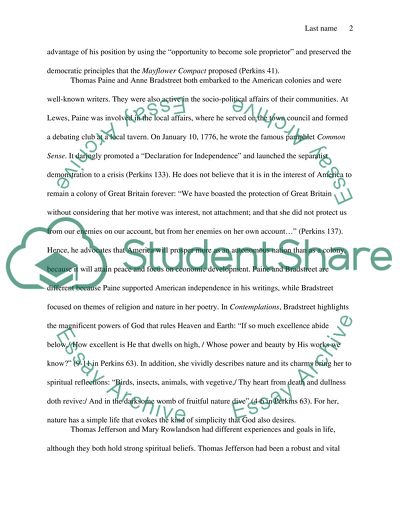Cite this document
(“Compare and Contrast: Bradford and Franklin Essay”, n.d.)
Compare and Contrast: Bradford and Franklin Essay. Retrieved from https://studentshare.org/literature/1451801-compare-and-contrast-american-writers
Compare and Contrast: Bradford and Franklin Essay. Retrieved from https://studentshare.org/literature/1451801-compare-and-contrast-american-writers
(Compare and Contrast: Bradford and Franklin Essay)
Compare and Contrast: Bradford and Franklin Essay. https://studentshare.org/literature/1451801-compare-and-contrast-american-writers.
Compare and Contrast: Bradford and Franklin Essay. https://studentshare.org/literature/1451801-compare-and-contrast-american-writers.
“Compare and Contrast: Bradford and Franklin Essay”, n.d. https://studentshare.org/literature/1451801-compare-and-contrast-american-writers.


